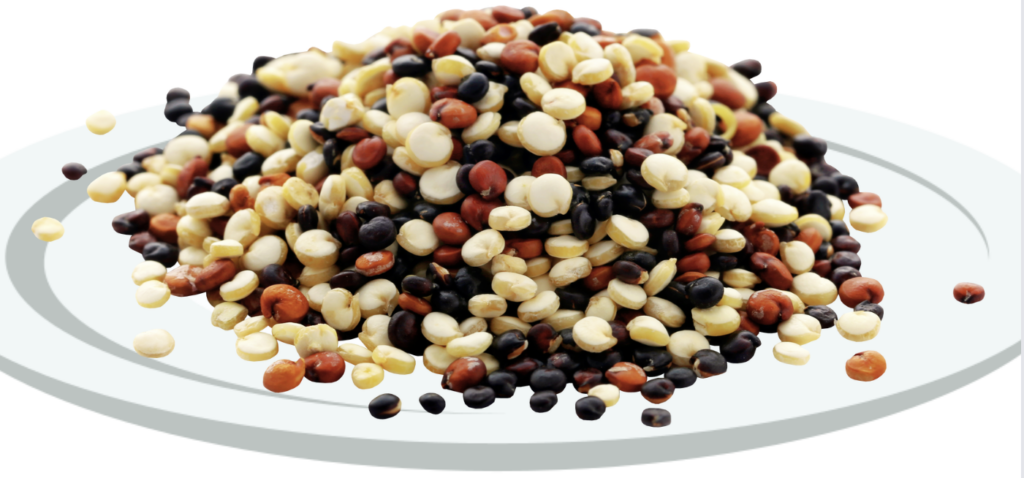What to Eat and Drink
Is Quinoa Low Oxalate
Are you curious about whether or not quinoa has a low oxalate content? If that is the case, you are not the only one. Many people are interested in learning more about the nutritional qualities of this adaptable seed because of the growing popularity of quinoa as a healthy alternative to grains. In this article, we will investigate whether or not quinoa contains a low amount of oxalate, as well as the implications of this finding for persons who are required to keep a close eye on the amount they consume.
What is oxalate and why is it important?
The naturally occurring chemical known as oxalate can be discovered in a wide variety of foods, including particular fruits, vegetables, and grains for example. When the body breaks down specific chemicals, such as vitamin C, it results in the formation of this compound. At low concentrations, oxalate does not pose any health risks; but, when it is present in the body in excessive quantities, it can play a role in the development of kidney stones. In light of this, it is essential for certain persons to restrict the amount of oxalate they consume.

Understanding quinoa and its nutritional profile
Quinoa is a seed that has become increasingly popular in recent years due to the great number of health benefits that it offers. Despite the fact that it is frequently referred to as a grain, it is actually a seed that originates from the Chenopodium quinoa plant. Quinoa is not only free of gluten, but it is also loaded with other important elements, including fiber, protein, and vitamins.
Oxalate content in quinoa
In terms of the amount of oxalate that it contains, quinoa is considered to have a little amount. It has been determined by the United States Department of Agriculture (USDA) that around 2.6 milligrams of oxalate can be found in one cup of cooked quinoa. When compared to other foods that are rich in oxalate, such as spinach or rhubarb, quinoa is a much safer alternative for persons who need to monitor the amount of oxalate that they consume.
Benefits of a low oxalate diet
It is possible that individuals who have a history of kidney stones or other conditions that need them to limit their consumption of oxalate may discover that adhering to a diet that is low in oxalate is beneficial to them. Through a reduction in the amount of oxalate that they take in through their diet, individuals can help prevent the formation of new kidney stones and reduce the risk of complications that are connected with high oxalate levels.

Is quinoa a low oxalate food?
Quinoa is a food that might be considered to have a low oxalate content. Because of its relatively low oxalate level, quinoa is an excellent choice for individuals who enjoy eating this nutrient-dense seed but are concerned about the amount of oxalate they consume overall. The fact that people’s tolerance to oxalate might vary greatly is something that should be taken into consideration. It is possible that certain individuals, who have certain dietary concerns or medical issues, will still be required to watch the size of their portions or restrict the amount of quinoa that they consume.
Factors that affect oxalate levels in quinoa
Despite the fact that quinoa is generally believed to have a low oxalate level, it is important to keep in mind that the oxalate concentration can change depending on a number of different conditions. There are a number of factors that can have an effect on the oxalate levels in quinoa, including the type of quinoa, the soil conditions under which it was cultivated, and the processing procedures that were utilized. This indicates that the amount of oxalate that is present in quinoa may vary slightly from one brand or source to another.
How to prepare quinoa to reduce oxalate content
If you are concerned about the oxalate content in quinoa, you can take efforts to reduce it even further. One approach is to properly rinse quinoa before cooking it. Although rinsing can help eliminate some of the oxalate content, it may also remove some of the beneficial elements. Another alternative is to soak the quinoa overnight to help break down the oxalate molecules. Finally, you can cook it in extra water and then drain it to lower the oxalate content even further.

Quinoa substitutes for a low-oxalate diet
While quinoa is an excellent choice for people seeking a low oxalate grain alternative, there are other possibilities. Rice, millet, amaranth, and buckwheat are some alternatives to quinoa. These grains have comparable nutritional advantages and can be used in a number of cuisines.
Dietary oxalate management suggestions
There are a few guidelines you can use to manage your oxalate consumption. To begin, be mindful of high oxalate foods and minimize your consumption of them. Foods high in oxalate include spinach, beet greens, rhubarb, and chocolate. Furthermore, consuming plenty of water and being hydrated might aid in the removal of excess oxalate from the body. Finally, if you have special dietary issues or medical conditions, it’s always a good idea to seek personalized counsel from a healthcare expert or registered dietitian.
Conclusion
Quinoa can be a healthy and delicious addition to a low oxalate diet. It is a healthful alternative to other grains due to its low oxalate level and other health advantages. However, keep in mind that individual tolerance to oxalate varies, so if you have specific dietary issues or medical conditions, it’s better to speak with a healthcare expert or certified dietitian. You may enjoy the many advantages of quinoa while keeping your health in control by making informed decisions and managing your oxalate intake.


